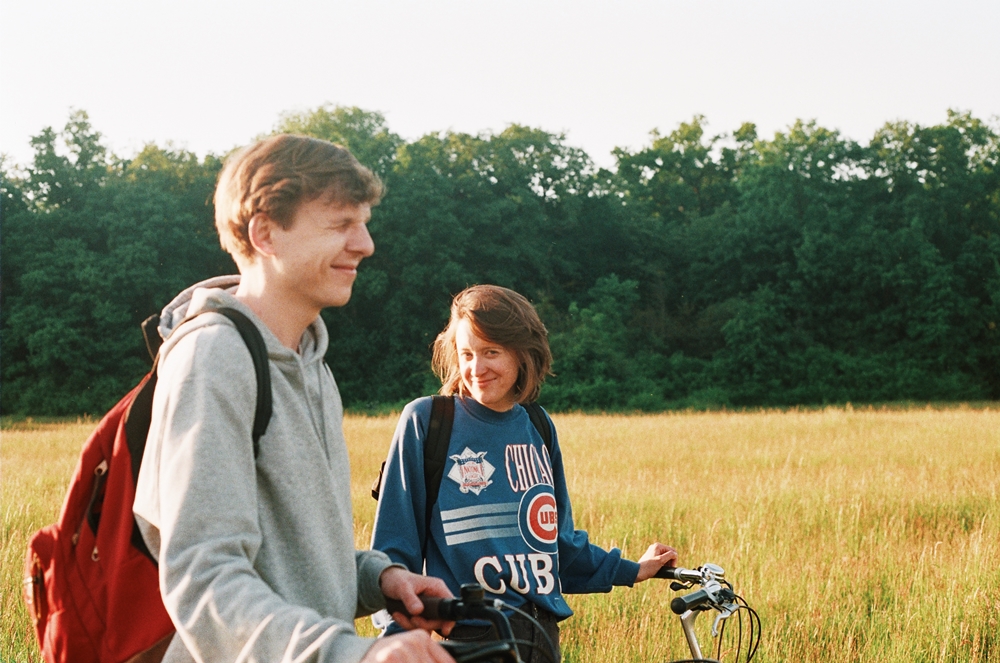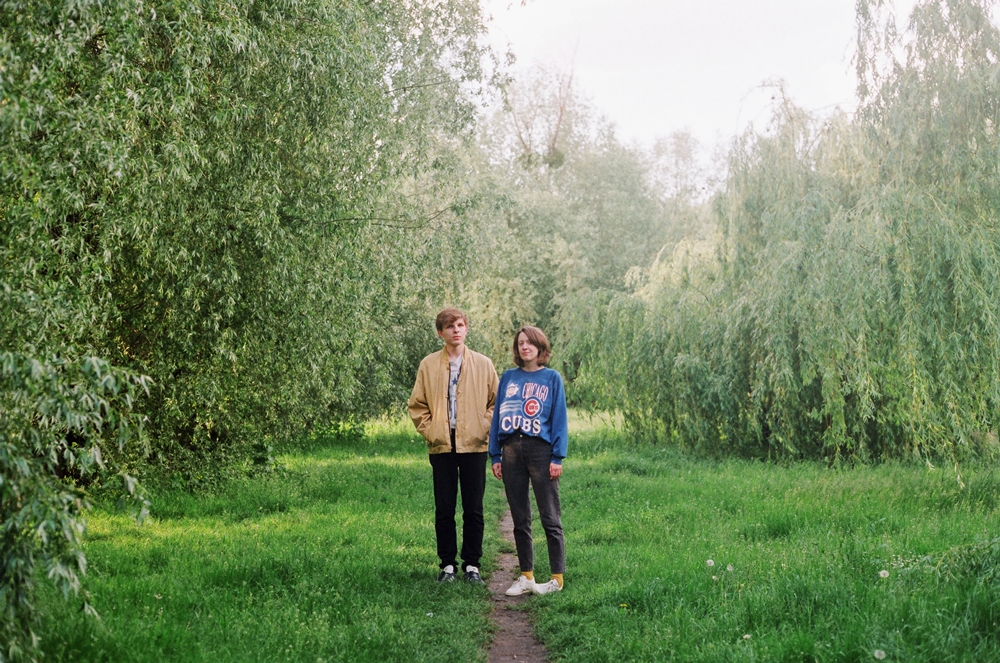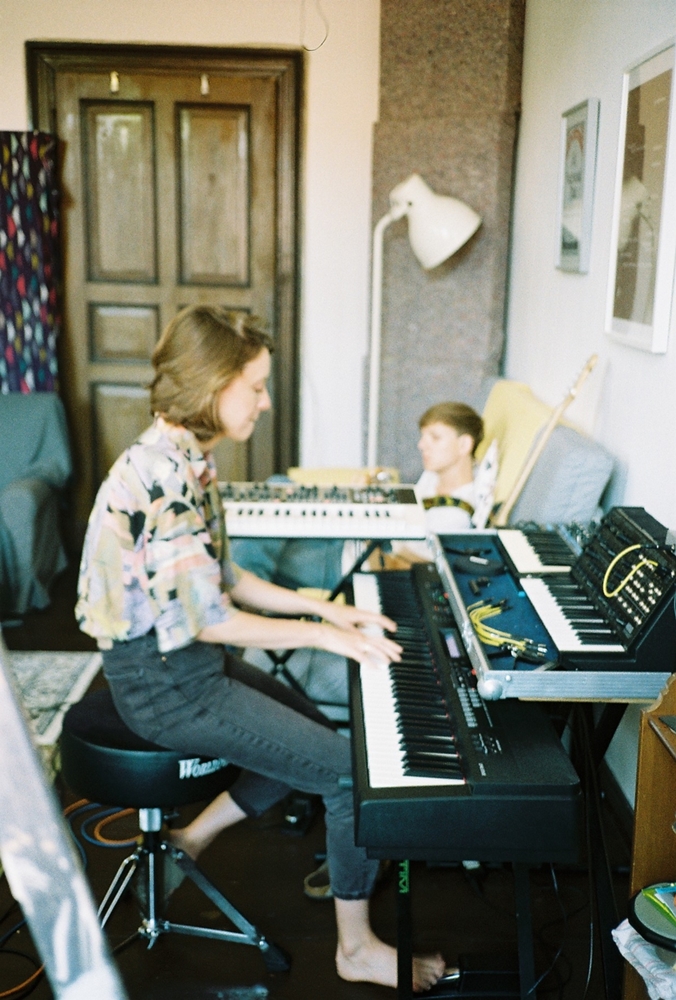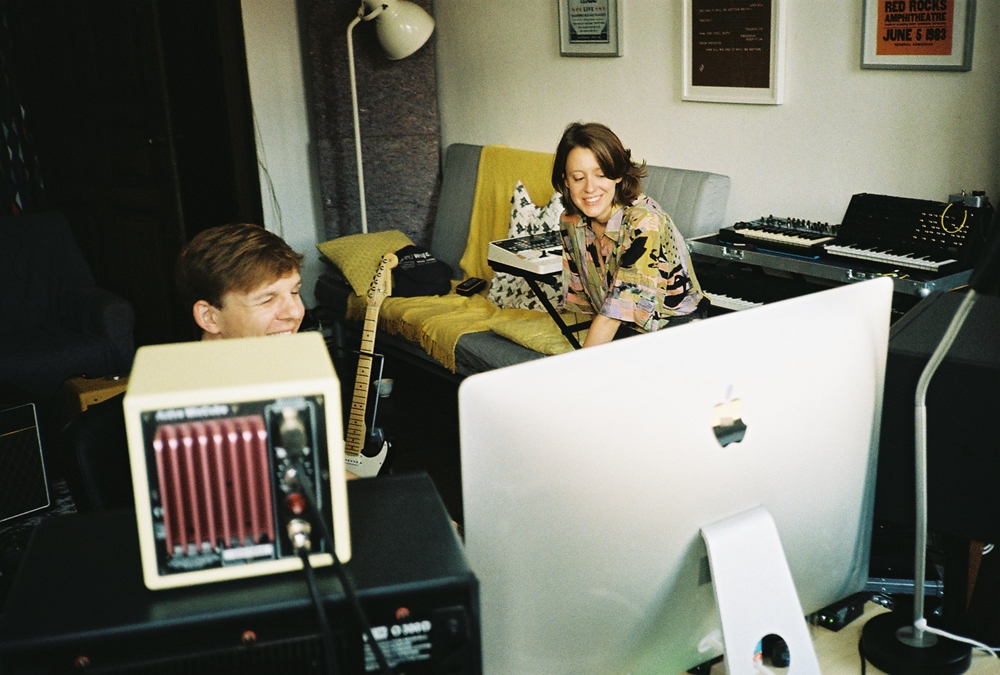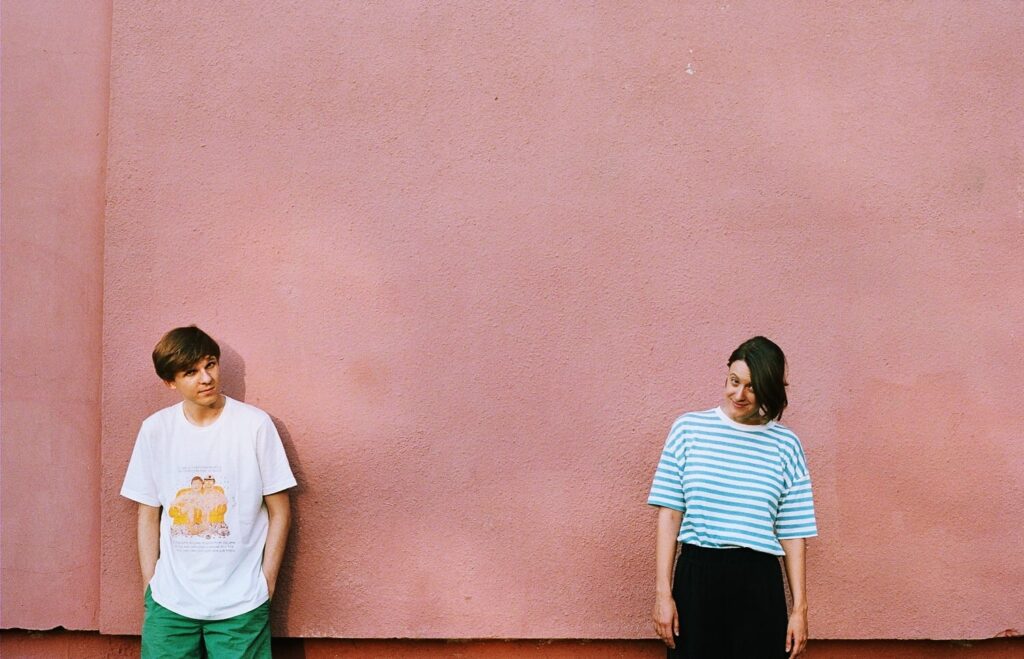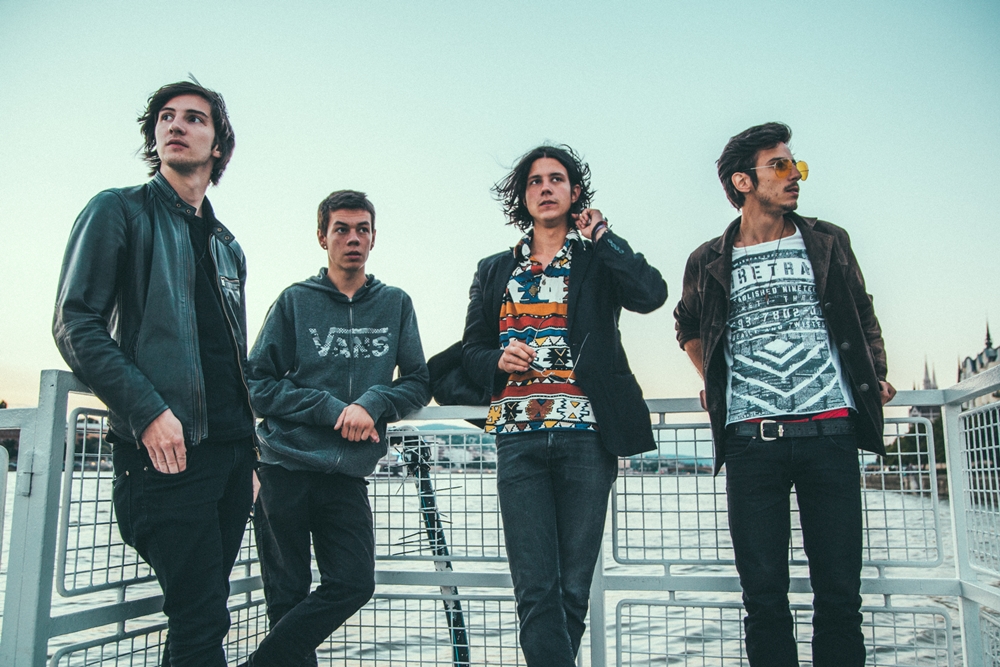Oxford Drama is a Polish experimental-pop band from Wrocław, formed in 2014. Big-time fans of Kevin Parker, Graham Coxon, and Brian Wilson, Gosia Dryjanska & Marcin Mrowka have crafted a sound that is a mix of indie-pop guitar, soft electro, and thoughtful lyrics.
CVLT: Hello! Can you offer some insights into the origins of the project?
Gosia: Marcin and I met over nine years ago during a high-school English contest and, because we were the only two nerds talking about music in our speeches, we felt we might have a lot in common. It took Marcin about two years of persuading me into forming a band, as both of us played instruments and we had almost the exact library on our iPods. I finally agreed and out of boredom during a university break we started making music and here we are.
Given the state of mainstream culture that permeates how we consume media, how would you introduce your activity to a stranger?
We are a band formed by socially awkward people who at the same time are aware that they have to be visible in your Internet feed but don’t really want to be too intrusive about it, so once in a while, we will inform you about some things that are going on in our lives as a band, and it’s mostly only music-oriented content. We’re just two music nerds!
Sometimes we kind of feel like old souls. We’re a live band that still drags loads of gear with them when we could computerize more parts, but that’s what feels right for us.
Take me through your sound design process. Is this a quick process, or something you might obsess over and re-visit?
We love details and are perfectionists, and with ‘What’s The Deal With Time?’ for the first time we took our time and didn’t hurry to finish the album. The composition process was extremely quick and creative and after a couple of months we had a finished record from a composition point of view, and then the honeymoon ended. The production process was definitely less sexy. We needed a lot of months to feel that the record doesn’t have elements that are useless and after over a month after the release, we are still happy that we didn’t rush it and we wouldn’t change a thing. We’re really proud of this one.
What are your core motivations for music-making, and have they changed over the years as you’ve become more visible?
We’ve started the band from our deep love for music and out of being grateful for how it changed us as people, how it took care of us, made us comfortable with our sensitivity, and the way we perceive the world. I would say that our core motivations didn’t really change, we just got more aware of them. We formed Oxford Drama because we were curious what both of our brains can create together. And to be completely honest, even if in some time there won’t be that much interest in Oxford Drama, we are sure that we will still continue making music in our home studio. Playing the instruments just for pure fun or to get the emotions out, listening to music, reading about it – these are the activities that we love and nothing compares to them.
When you are not busy creating, which other artists do you follow or listen to?
It constantly changes. We have certain bands that we revisit once in a while and can still find new elements in their compositions, like Radiohead or Grizzly Bear, and then there are bands or musicians that appear because of a new release or a new found love or a forgotten one, like Fleet Foxes, The Blue Nile or Beck, and we just simply cannot stop listening to them.
With everyone doing virtual performances these days, how do you plan on setting yourself apart from the other performers?
‘What’s The Deal With Time?’ is the first record that we started planning visually at the early stages of the production phase. We are no visual artists but we know what we like, which is why once again Hanna Cieślak was responsible for the artwork. We also started working with Jakub Jakobiszyn, also known as korbusje, on the videos promoting this release. Both of these two minds helped us in transforming what we made musically into the forms that can be seen. The album artwork was beautifully put by Hanna who we feel that truly understood our intentions, while korbusje helped us in showing our true selves in our videos. We are not artists (or maybe not yet) who redefine their image with every album, but who want to show who we naturally are. We want to show pure emotions which drive us into who we are as musicians, and we believe that it can be seen also in our visual representation.
Have you seen a transition in your sound since you began? What influences do you think have been the cause of these changes?
Definitely! Our sound at the very beginning was more electropop oriented simply because we’ve had no experience, wanted to play music just the two of us, we had (still have!) a small car and not that much gear for a whole band, so it definitely made a huge impact on our decisions seven years ago when we formed the band. But we always had guitars close to our hearts and I feel it was just a matter of time to put them on the frontline of our songs. Our best friends started playing live with us a couple of years ago and we felt that now is the time when we can write parts for more hands, with a live drum set, with a second guitar, with a bass guitar, and vocal harmonies. We no longer had those boundaries holding us down. And what also changed is that with the experience we have more certainty about what we want and how we want to sound. Sometimes we’re not sure how to achieve it, so it takes more time, but we know perfectly well the feeling when a song works for us.
What does it mean to play and live in the millennial generation of music artists? What do you borrow from those who came before you, and what do you do to push the genre forward?
Sometimes we kind of feel like old souls. We’re a live band that still drags loads of gear with them when we could computerize more parts, but that’s what feels right for us. We’re deeply inspired by such concerts as Talking Heads’ ‘Stop Making Sense’ concerts or also the more recent one by David Byrne called ‘American Utopia’. It doesn’t mean that we’re planning on having choreography (yet!) but the way these concerts are polished makes us excited to be better and better at what we do. We love watching Radiohead concerts to see how the band changed. We’re not that fond of technology but we’re aware that being the millennial generation gives a lot of means that weren’t available before. We can inform our fans what’s up with us even when we can’t play concerts because of COVID-19. I guess we just really try to be conscious not to fall into the modern trap.
What literary work – novel or poetry – do you think would fit the sound descriptions? Can you give us a title and a reason?
Recently I’ve been reading a lot of Joan Didion books and I feel that our (that is Marcin’s and mine as well) brains function similarly to hers. They are analytical, observant, and sensible but still full of sensitivity and emotion. At least that’s how I look at her as a writer and I feel all of these above are crucial in making Oxford Drama music. She’s been a huge inspiration recently.
We’ve never really had a tour outside of Poland and would love to change that.
Does the conception come first or does the song evolve naturally – do you have a clear idea of what it will be before you start to make it?
What I like about the energy between Marcin and me is that ideas come differently to each of us. Maybe because the vocal is my leading instrument, it comes first but always with words, and only then I find chords for it, while Marcin composes melodies and does arragnements on instruments, sometimes also with ideas for vocal melodies. But both of us always have the core emotion that leads the idea, so it takes the function of a guide that informs the other person what can be done with the demo.
When listeners make their way through your songs, what do you want to feel?
Especially with the latest record, we wanted to consciously make the listener feel that right now they’re entering a different world and can explore an album journey. Every song itself is a trip but also the whole tracklist was meticulously chosen to smoothly transit from one song to another. We often listen to whole albums, so I guess with this one, as this is also a concept album, we wanted to make a spaceship (as our friend once compared entering the world of a great album) that takes you on a journey and presents a range of emotions that gives you a great time but also maybe teaches you something? That’s at least how I see it and I’m happy that we got a lot of comments from our fans that the record really is a ride and they feel emotionally connected to it.
What do you hope to do with your art in the future? I mean, do you have any special goals?
We just want to keep making art the way we want it, to have that artistic freedom. We feel that we’re only getting started. But we also can’t wait for shows to start as we have some concert plans as well. We’ve already played almost the whole album live and it felt amazing. Also, we’ve never really had a tour outside of Poland and would love to change that.
Follow OXFORD DRAMA on:
Facebook | Bandcamp | Instagram
Photo cover: (c) Nelly Valverde
